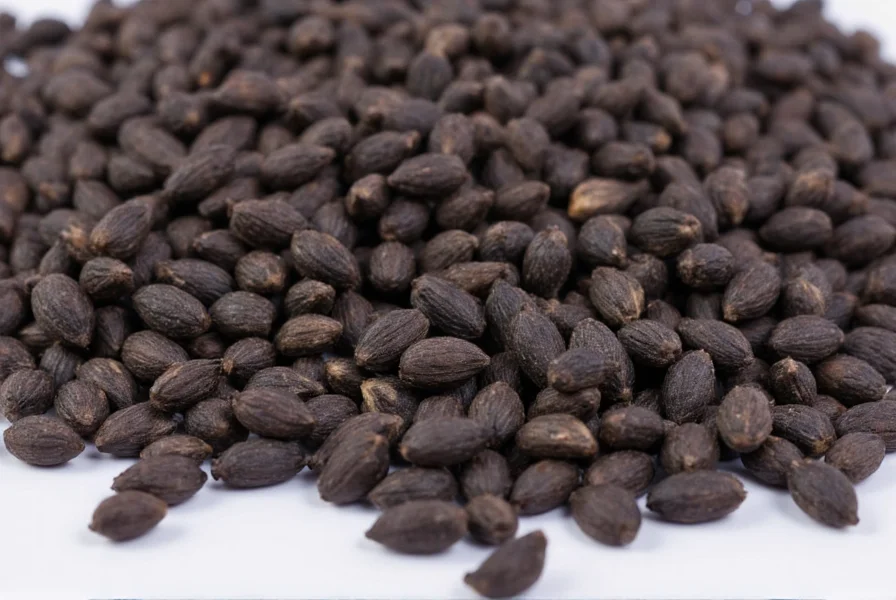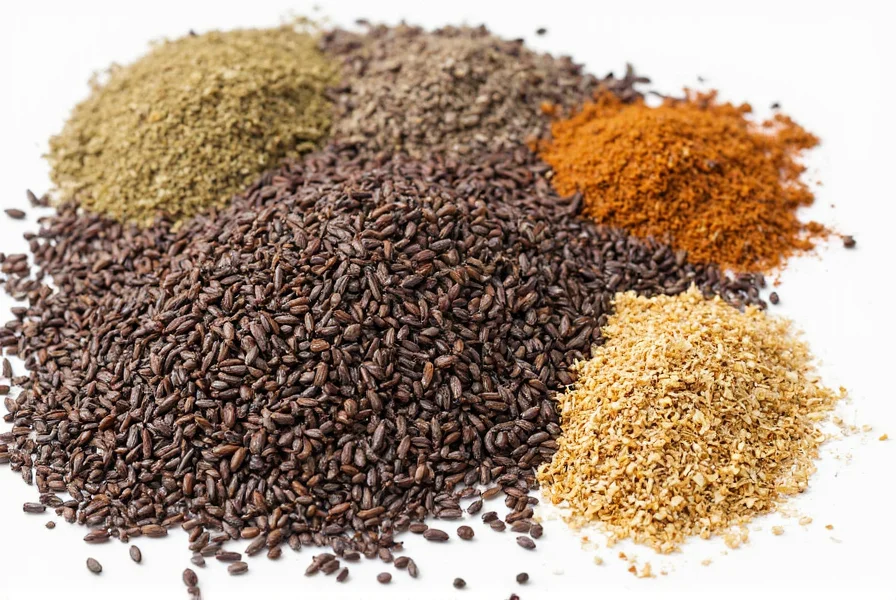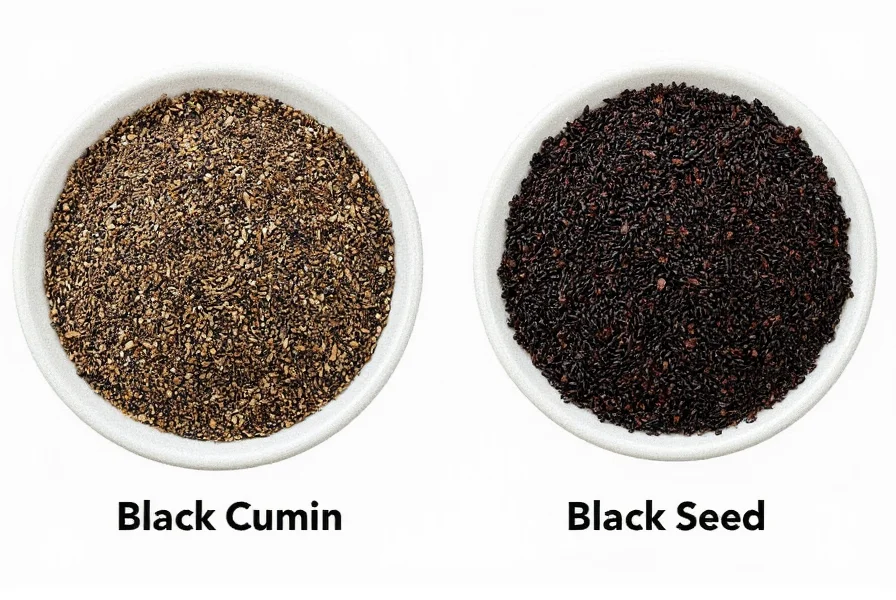Many people search for black cumin vs black seed wondering if they're different ingredients, but this common confusion stems from inconsistent naming across cultures and languages. Understanding this distinction—or rather, the lack thereof—is essential for anyone using these seeds in cooking, supplements, or traditional remedies.
Why the Confusion Exists
The terms "black cumin" and "black seed" both describe Nigella sativa, an annual flowering plant native to Southwest Asia. The confusion arises because:
- In Middle Eastern and South Asian countries, these seeds are commonly called kalonji or black cumin
- In Western health communities, they're frequently marketed as black seed
- They're sometimes mistakenly associated with regular cumin (Cuminum cyminum), which is a completely different plant
Botanical Identity: One Plant, Multiple Names
Nigella sativa belongs to the Ranunculaceae family and produces small black seeds with a distinctive nutty, slightly peppery flavor. Here's how the naming varies globally:
| Region | Common Name | Local Name |
|---|---|---|
| Middle East | Black seed | Habat al-barakah ("blessed seed") |
| South Asia | Kalonji | कालोंजी (Hindi), কালোজিরা (Bengali) |
| Europe/North America | Black cumin | Nigella, Fennel flower |
Unlike true cumin (Cuminum cyminum), which has a warm, earthy flavor, Nigella sativa seeds have a more complex taste profile with onion-like and oregano notes. This difference in flavor explains why they're not interchangeable in recipes despite the similar naming.
Nutritional and Medicinal Properties
Research on Nigella sativa has identified several bioactive compounds, most notably thymoquinone, which accounts for many of its potential health benefits. When examining black seed vs black cumin nutritional value, remember they're identical:
- Rich in antioxidants - Particularly thymoquinone, which has demonstrated anti-inflammatory properties in studies
- Contains essential fatty acids - Including linoleic acid and oleic acid
- Source of minerals - Calcium, iron, and potassium
- Traditional medicinal uses - Documented in Islamic medicine and Ayurveda for respiratory support and digestive health
A 2020 review published in the Journal of Ethnopharmacology analyzed over 50 clinical trials involving Nigella sativa, confirming its potential benefits for metabolic health, though researchers noted more large-scale human studies are needed.

Common Misidentifications
The difference between black cumin and black seed confusion often extends to other similarly named ingredients:
- Regular cumin (Cuminum cyminum) - Larger, lighter brown seeds with a completely different flavor profile
- Bunium persicum (black caraway or Kashmiri cumin) - Sometimes sold as "black cumin" in specialty markets
- Onion seeds (Nigella nigella) - Often mistaken for black cumin in Indian cooking contexts
When shopping for black cumin seed oil benefits or whole seeds, check the Latin name Nigella sativa to ensure you're getting the correct product. Many supplement labels now include this botanical identification to prevent confusion.
Culinary Applications
Chefs worldwide use Nigella sativa seeds (whether labeled black cumin or black seed) for their unique flavor contribution:
- Bread baking - Sprinkled on naan, Turkish breads, and Jewish rye
- Spice blends - Key component in panch phoron (Bengali five-spice mix)
- Vegetable dishes - Added to roasted vegetables or pickles for complexity
- Oil extraction - Cold-pressed for culinary and topical use
When substituting in recipes, remember that black seed vs black cumin isn't a substitution question—they're the same ingredient. However, they cannot replace regular cumin due to significant flavor differences.

Purchasing and Storage Guidelines
Whether you're buying products labeled as black cumin seed or black seed, follow these quality indicators:
- Look for seeds with a matte black appearance (shiny seeds may be coated or stale)
- Fresh seeds should have a distinctive aroma reminiscent of oregano and onions
- Store in an airtight container away from light to preserve thymoquinone content
- For oil products, choose cold-pressed varieties in dark glass bottles
When evaluating black seed oil benefits claims, be cautious of products making exaggerated health promises. While research shows promise, no single food or supplement provides miraculous cures.
Conclusion
The question of black cumin vs black seed ultimately resolves to a terminology issue rather than a botanical one. Both names refer to Nigella sativa, a versatile seed with culinary and potential health applications. Understanding this naming convention helps consumers make informed choices whether shopping for spices, supplements, or traditional remedies. When researching black cumin seed oil benefits or culinary uses, remember you're exploring the properties of a single plant regardless of which common name appears on the label.
Are black cumin and black seed the same thing?
Yes, black cumin and black seed both refer to Nigella sativa. The different names stem from regional and marketing variations, but they describe the exact same plant and seed with no botanical differences.
Can I substitute black seed for regular cumin in recipes?
No, black seed (Nigella sativa) has a completely different flavor profile than regular cumin (Cuminum cyminum). They are not interchangeable in recipes. Black seed has onion-like notes while cumin has earthy, warm characteristics.
What is the main active compound in black cumin seed?
Thymoquinone is the primary bioactive compound in Nigella sativa seeds, accounting for many of the potential health benefits studied in scientific research. It's a powerful antioxidant with demonstrated anti-inflammatory properties.
How should I store black cumin seeds to maintain freshness?
Store Nigella sativa seeds in an airtight container away from light and heat. For maximum shelf life (up to 2 years), keep them in the refrigerator. Fresh seeds should have a distinctive oregano-onion aroma and matte black appearance.
Is there scientific evidence supporting black seed health benefits?
Research shows promising results for Nigella sativa in areas like inflammation reduction and metabolic health, with over 50 clinical trials analyzed in a 2020 Journal of Ethnopharmacology review. However, more large-scale human studies are needed to confirm specific health claims, and it should not replace medical treatment.











 浙公网安备
33010002000092号
浙公网安备
33010002000092号 浙B2-20120091-4
浙B2-20120091-4